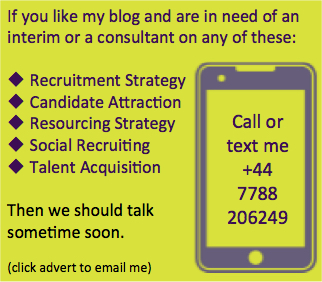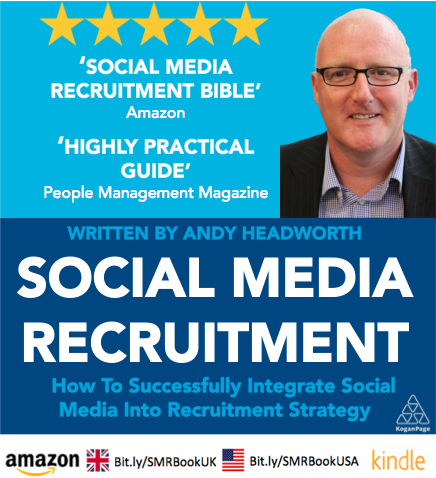Why Do So Many Recruitment Strategies Fail?
Have you ever wondered how many companies actually get their recruitment strategies right and deliver on their objectives? I appreciate that this is a statistic we will never know, but it is definitely not, from my experiences, a large percentage. For every high profile case study examples of stand out recruitment strategies I would suggest there are many other companies that are struggling to make their recruitment strategy deliver the talent their business needs.
I am sure you can list a number of examples where your recruitment objectives (you did set them, didn’t you?) have not been met for different reasons. Sometimes they are for reasons genuinely out of your control (of the HR/recruitment team) that cause negative publicity which in turn impacts hiring strategy - the current VW diesel scandal is a perfect example of this. However, from my experiences working with companies, this is the exception rather than the rule. Too many have resolvable problems within their recruitment strategy which then cause hiring issues at some stage during their recruitment process. The issue for them is actually understanding what these problems are.
A question I find myself continually asking is, ‘why can companies can be so good at certain aspects of their recruitment process, but let themselves down so badly in other areas‘. The simplest (and most common example) is the career site / website: companies do fantastic creative recruitment campaigns and/or have highly engaging social media accounts as part of their candidate attraction strategy. But when the candidate arrives at the career site / /website on their mobile, the non-mobile friendly user experience is so bad they click away, with all the great attraction work being completely wasted. Added to this is also the potential that this person will share this poor experience either with their network, or even on Glassdoor.
Over the course of this year talking to companies I have seen many examples of how recruitment has failed to deliver the candidates expected. I have listed below, ten common reasons why many recruitment strategies fail:
- No objectives set.
This is all too common with companies - a lack of a defined objectives set for their recruitment campaign or overall strategy. But, if there are no objectives or goals set, then how can you measure success or failure? Taking that a stage further, how can you then establish an ROI for your recruitment campaign or strategy? Some companies just don’t seem to care (seriously they don’t!) about this - until they run out of budget with still nothing to show for it. Setting objectives and goals are things we all do every day, so it always baffles me when I find companies not taking the time to do it, and then complaining about the lack of results (they can’t measure). - Candidate shortages.
We all know there are skills shortages, and every single day on LinkedIn you will read regurgitated articles telling us how bad they are. There are some genuine areas of skill shortages in certain geographies that are incredibly challenging and difficult to resolve. But from my perspective too many companies use the skills shortages, as an excuse for poor candidate identification and sourcing. For example, there is still an infatuation with LinkedIn as a source for talent! Not all your talent is on LinkedIn, it is available in many other places - e.g. LinkedIn has 400m members, Facebook has 1.5 billion, yet recruiters are still not keen to use it to recruit. To a certain extent, candidate shortages are an attitude of mind - companies are still seeking a near 100% fit for roles instead of being realistic and taking a 70% fit and allowing some skill development.
Understanding correctly what you are recruiting for, the skills you need and the locations where you are going to find suitable candidates is critical to recruitment success. It could be improved by building candidate personas and training your recruiters better in sourcing and engagement techniques. - Recruitment process.
This is a lot to do with technology and having an online process that actually works effectively! What is the recruitment process like at your company to find and apply for a job? Have you even tried your own recruitment process by doing an application yourself?
Some of the errors include; career page links being hidden away at the bottom of the site or worse still in the ‘About us’ tab; hard to find jobs and/or the job search; way too many pages to fill in to apply for a role; no way of uploading a cloud based CV; little candidate communication or engagement; lack of auto-response acknowledgement emails; and a ‘black hole syndrome’ (i.e. candidate feels they have just sent their CV into one!). A recruitment process does not and should not have to be over complicated, but it should be intuitive. Maybe it is time to review yours? - Interview process
There is a lot to be said for communicating well with candidates during the entire recruitment process - something too many companies still have a problem with. From the moment the process starts, candidates need to feel they are wanted by the company, so why try and make it feel quite the opposite? From making candidates wait for interviews; not preparing for the interview; still reading CV’s in front of them at the interview; poor interview skills; Hiring Managers who do more harm than good in an interview; bad offer management and overall bad candidate management. What is worse about many of these is that I found them on Glassdoor reviews and clients had failed to even address them - they simply didn’t listen! - Ignorance
“You mean people are using social media for recruiting now?” and “candidates won’t use mobiles for searching for jobs’ and “only ‘young people’ use social media” are just three statements from HR Directors I have spoken to in the last month! I seriously could not believe what I was hearing. There is simply no excuse anymore, for not making yourself aware of what goes on in the world, and more importantly your own industry - and I don’t mean at the micro level either. My response to one of these HRD’s was a little sarcastic, “did you know the world is now round and people have landed on the moon”! They got the message.There is proving to be a long post so I have added a short intermission 🙂This is still one of my favourite videos - recruitment strategy, James Bond style.Now, back to reading about why recruitment strategies fail… - Social media
The strength of social media is the ability to use it for sharing, communicating and engaging with people. Yet when it comes to recruitment, companies still treat it as a job board, posting jobs and not much else! The other huge failure (I could list many here, but not today!) is the way companies look at social media like a 9-5, M-F platform. This has to be one of the craziest things - social media is a 24/7 platform, with more activity likely OUT OF OFFICE hours. It is no wonder small issues are snowballed by the time companies see them up to 3 days later sometimes! Candidates are on over five social networks each, yet the recruiters are not - maybe they should try harder to be where their target audiences are. - Sheep syndrome
This complaint does my head in! Just because other companies are doing something DOES NOT mean you have to copy them and do the same thing. Sheep may follow each other around but surely companies have more intelligence than that? Well a recent example is in the UK University sector, where one software provider had a near monopoly in a particular type of software. When challenged, I was told that there was better and more functional product out there, but universities buy it because all the others have it and they don’t want to be different to the candidates! FOMO - fear of missing out. Absolutely crazy in my opinion!. - Accepting mediocrity and laziness
This is a problem that occurs more times that companies would admit to. They accept they don’t have the best recruiters or the best recruitment software, they have out of date technology, outsourced partners not delivering, job specs that are totally out of date, competency frameworks for their interviews that have absolutely no relevance with the roles they are recruiting for, and internal processes that were in place in the roman times( not literally, obviously!) They fundamentally know about these issues, but (for whatever reason) they choose to do nothing about them! I don’t know who is to blame - the HR departments or the business for not calling them out quicker. - Technology
Contrary to what some luddites are saying in our industry, technology is a recruitment enabler. It helps source, hire, engage, and assess talent quicker and faster than we have ever done before. Yet the adoption of technology in the recruitment sector is P-A-I-N-F-U-L-L to say the least. How long did it take for the ATS vendors to integrate social, mobile or ‘apply with Dropbox/Indeed/Monster’ into their ATS platforms? Some are still working it out! And what about the instant messaging platforms that are used the world over for person to person communications - how many ATS providers have integrated them yet? I don’t actually know of any that have.
I have no idea why recruitment lags so far behind other industries, but I do know that recruitment strategies could be so much more effective with technology that is at least in the same decade as the technology the candidates are using! - Data failure
Website analytics, career site analytics, email marketing data, social media insights and metrics, recruitment metrics and data reports are all there to help companies improve their efficiency, performance and aid decision making. WHY DON’T COMPANIES USE IT to help them make important decisions? The data is there and available (most of the time) and as long as you don’t ask for a source of hire report from your ATS (ok a little sarcasm here) then you will be ok to get your data to make more informed hiring decisions.
I help companies large and small with their recruitment strategies, helping them integrate social media into their recruitment processes. It may surprise you to know that every single company is different in the way they work, the people that do the recruiting and the objectives of the organisations. There is no out-of-the-box solution that fits everyone (although the vendors will tell you different), but there are common processes that work better than others. If your recruitment strategy is under-performing, there is always a good reason why, and often it isn’t as complex as you first think.
If you want to discuss areas of this post, or need help with regards to improving your strategy or process, just send me an email and let’s have a chat.
And remember, if you like this post, don’t forget to subscribe to Sirona Says blog to ensure you don’t miss the weekly posts. And if you haven’t got your copy yet, don’t forget to buy a copy of my new book.

-
Stephen Turnock












